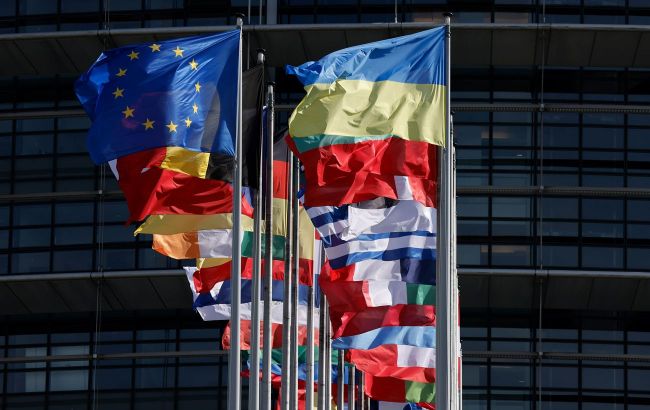EU Parliament supports extending trade liberalization for Ukraine
 Illustrative photo (Getty Images)
Illustrative photo (Getty Images)
MEPs in the European Parliament's International Trade Committee have approved the extension of trade liberalization measures to support Ukraine in the face of the Russian war, according to the European Parliament.
EU lawmakers approved a proposal to extend the temporary suspension of import duties and quotas on Ukrainian agricultural exports to the EU for another year, from June 6, 2024, to June 5, 2025, by 26 votes to 10 and 1 abstention, to support Ukraine in the face of Russia's ongoing aggressive war.
The legislation empowers the European Commission to take prompt action and introduce any necessary measures in the event of significant disruptions to the EU market or the markets of one or more EU countries due to Ukrainian imports.
It also provides for an emergency restriction for particularly sensitive agricultural products, namely poultry, eggs, and sugar. This means that if imports of these products exceed the average volumes of 2022 and 2023, tariffs will be reintroduced.
The European Parliament is expected to vote on the first reading position at a plenary session next week. If the Parliament adopts its position on the first reading, the Council will formally approve the regulation and it will enter into force after publication in the EU's Official Journal.
Before that, the European Commission proposed to abolish import duties and quotas on Ukrainian agricultural products for another year, until June 2025. They were initially suspended in 2022 after Russia's invasion, which damaged supplies through the Black Sea.
Ukraine's reaction
Taras Kachka, Deputy Minister of the Economy of Ukraine, says that the European Parliament's Committee on International Trade (INTA) supported the European Commission's proposal to extend duty-free trade for Ukraine for another year without changes.
"Earlier, the same decision was approved by the ambassadors of the EU member states within the framework of COREPER. This procedural vote triggers the political approval of this decision, which should take place without discussion," he says on Facebook.
At the same time, Kachka added that a week ago, more than 100 amendments were submitted to the European Commission's proposal in the Agricultural and Trade Committee.
"Almost all of them proposed to narrow access to the EU market for Ukrainian products. The reason is the demands of farmers and the upcoming elections to the European Parliament," he added.
Problems with imports from Ukraine
On June 4, 2022, the regulation on temporary measures for trade liberalization came into force. The document temporarily suspends some tariffs set out in the EU-Ukraine Association Agreement. As a result of the regulation, some countries began to suffer losses from the oversupply of Ukrainian products, which led to protests.
Bulgaria, Poland, Romania, Slovakia, and Hungary are demanding that the European Commission impose import duties on Ukrainian grain due to alleged unfair competition.
According to the Financial Times, Brussels will introduce "precautionary measures" that will allow it to block food from Ukraine if it threatens to lower prices in Poland and other neighboring countries.

